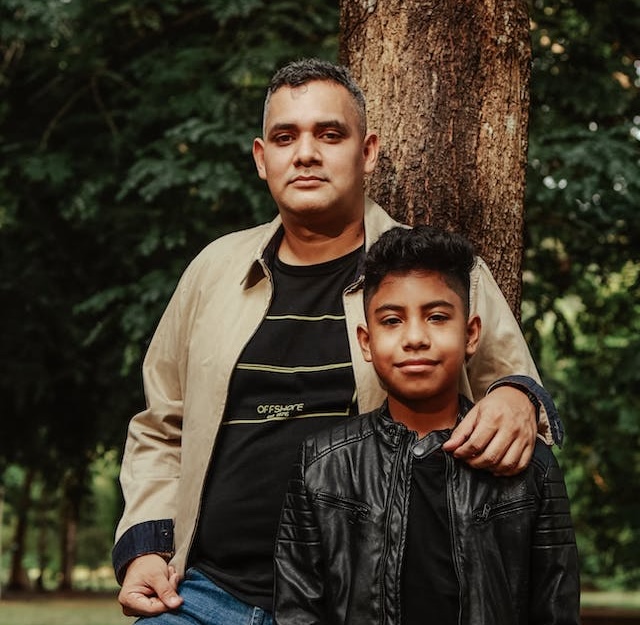 If you were raised in a Latinx household, you’ll know that when it comes to mental health, we don’t grow up talking about it.
If you were raised in a Latinx household, you’ll know that when it comes to mental health, we don’t grow up talking about it.
So if the thought of admitting to your family that you’re struggling makes you tense up, we totally get it.
Personally, neither of us (Isabeth and Naydeline) talked about it with our parents until college, when we both went to therapy for the first time. It wasn’t until we had the right language to discuss mental health that we felt comfortable enough to bring it up at home. Shame and stigma play a huge role in discouraging folks from seeking mental health support in our communities — not to mention talking about it with loved ones.
As hard as it can be to bring up, there’s power and freedom that come from feeling safe in your mind and your body, and at home. If you want to explore having a conversation with your loved ones about mental health, we have some tips for you!
Here are a few book recommendations that speak to mental health-related topics such as intergenerational trauma and attachment styles:
- My Grandmother’s Hands: Racialized Trauma and the Pathway to Mending Our Hearts and Bodies
- It Didn’t Start With You: How Inherited Family Trauma Shapes Who We Are and How to End the Cycle
- Attached: The New Science of Adult Attachment and How It Can Help You Find — and Keep — Love
And of course, there’s therapy! Therapy can be a scary process, but having the right mental health professional on your side can help you work through things that you might not be able to on your own.
Listen to Naydeline Mejia and Isabeth Mendoza discuss tips for talking to your Latinx loved ones about mental health or therapy in this NPR LifeKit podcast:
A transcript of the podcast is also available.
Excerpted from “4 Tips for Talking to Your Latinx Parents About Mental Health” from NPR. Read the full article online.







